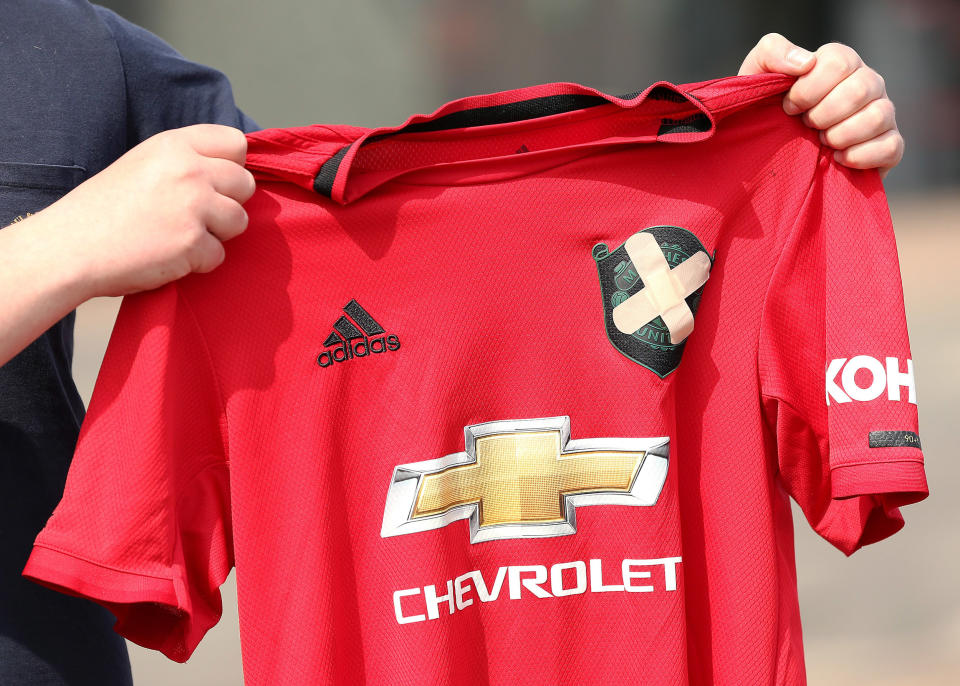They broke away to form a lucrative 'Super League.' After 48 hours of fury they're back.
LONDON — Just three days after a group of 12 elite English, Spanish and Italian soccer clubs announced the founding of a breakaway European Super League, opposition to it has left the plan in tatters.
All six of the English soccer clubs involved pulled out Tuesday amid fierce and widespread criticism, and by Wednesday morning one of the league’s founders admitted the new venture was likely dead.
"I don't think that project is now still up and running," said Andrea Agnelli, chairman of the Italian soccer club Juventus.
Not long after his comments, the other Italian clubs and one of the Spanish clubs involved, Atlético Madrid, said to count them out too.
The league, which would have rivaled the pan-European Champions League organized by the European football body UEFA, was presented as a way to “provide significantly greater economic growth and support for European football.”
But it was criticized as a greed-driven closed shop that shut off all but the richest teams in the sport.
Everyone from British Prime Minister Boris Johnson to Prince William, who serves as president of the English Football Association, spoke out against it.
“Now, more than ever, we must protect the entire football community — from the top level to the grassroots — and the values of competition and fairness at its core,” William wrote on Twitter.
Former players including David Beckham, as well as current players and team managers, made their opposition clear, while fans voiced their anger on social media and outside stadiums.
The growth of soccer as an international TV sport has seen the English Premier League sell its domestic and foreign broadcast rights for 9.2 billion pounds ($12 billion) a year, prompting rich, high-profile teams across Europe to consider grouping their resources.
A key problem was the proposal for all founding members of the 20-team league to keep their place regardless of their performance.
Soccer teams across Europe have to perform well in their domestic leagues in order to qualify for the lucrative Champions League. And unlike in most American league sports, teams who aren’t performing well face the possibility of being sent to the league below in the structure or "pyramid."
“The dream in football is that the smallest team can rise from the bottom to the top,” Michael Brunskill, a spokesman for the Football Supporters' Association, said.
“That sense of progression, the possibility to become an elite club, is really important. The Super League disregarded more than 100 years of tradition and created a closed shop where clubs could buy their way in to the biggest competitions."
The angry reaction to the plans had some English teams begging fans for forgiveness Wednesday, while the executive vice-chairman of Manchester United, Ed Woodward, who had been involved in the formation of the new league, announced his resignation Tuesday.

“In this endeavor I’ve let you down,” John Henry, the owner of the Liverpool FC as well as the Boston Red Sox, said in a video message released on social media. “I alone am responsible for the unnecessary negativity brought forward over the past couple of days. It’s something I won’t forget and shows the power the fans have today and will rightly continue to have.”
Download the NBC News app for breaking news and politics
The owners of three of the six English teams involved in the proposal are Americans, who also own American baseball and football teams, while two others are also foreign-born owners.
“The question that comes up time and time again is the problem of the unpredictability in sport versus the need for certainty for business, and in the U.S., I guess you would say the balance has traditionally tipped toward business, whereas in Europe we’ve tried to hold on to sporting values,” said John Williams, author of “Red Men,” a biography of the Liverpool Football Club, and associate professor of sociology at the University of Leicester.
“This one of the moments when that conflict was really put to the test.”
While the plans for the Super League may be dead, there is a recognition of the need for reform.
The pandemic has placed new financial pressures on soccer, referred to locally as football, with stadiums standing largely empty for the last year. Teams are also facing financial pressures because of high players’ salaries and transfer fees.
The government announced Tuesday a fan-led review covering the financial sustainability of the game, its governance and the merits of an independent regulator. The government said that even with the collapse of the Super League plans, the review would still go ahead.
Brunskill spoke for many fans in warning that the conditions are still ripe for something similar to happen in the future.
“The key now for football fans in this country is that this isn’t just a return to the status quo, because it will happen again,” he said.
Reuters contributed to this report.

